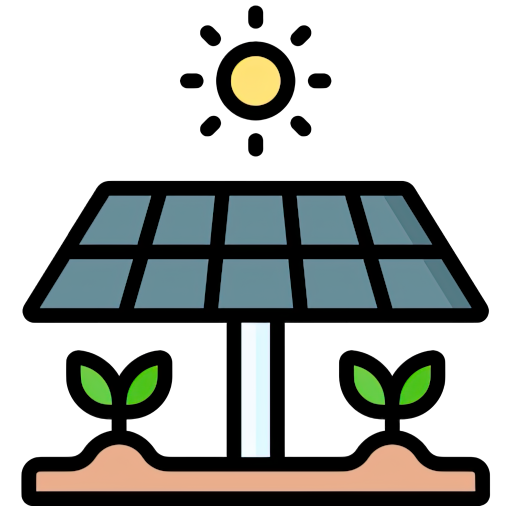Solar Panel Installation In Houston
Frequently Asked Questions (FAQ)
Please find below a list frequently asked questions
about solar power for your residence or business
If you have other questions, please fill out the form below or call us at 281-916-4244
What Are the Financial Benefits of Solar Energy?
1. What are the financial benefits of solar energy?
By installing a solar energy system on your property, you lower your electricity costs and insulate yourself from future increases in electricity prices.
The amount you can save will depend on your local utility costs and solar regulations, but going solar is a wise investment no matter where you reside.
2. What Are the Environmental Benefits of Solar Energy?
Like other renewable energy sources, solar electricity has several advantages for the environment and human health.
Going solar brings in fewer air pollutants like sulfur dioxide and particulate matter, which can have negative health effects, as well as lower greenhouse gas emissions, which are a factor in climate change.
3. How Do I Find Out How Much I Pay for Electricity?
Examining your monthly utility electricity bill is the simplest approach to determine how much electricity you use and pay for each month.
4. What Is Net Metering?
Utility companies utilize a mechanism called net metering to give owners of solar energy systems a credit for the electricity their solar panels generate.
If you employ net metering, you only pay for the excess electricity your solar panels can’t produce.
Make careful to complete your research in advance because net metering regulations vary from state to state, from Texas to Alaska.
5. How Does Solar Impact My Property Values?
According to studies, houses with solar energy systems are worth more when they are put on the market. However, if you own your solar panel system rather than lease it, your home’s worth will rise.
Going solar will typically improve the value of your home more than remodeling the kitchen.
How do solar panels work for my home?
6. How Do Solar Photovoltaic (PV) Panels Work?
Direct current (DC) power is produced throughout the day by solar panels by absorbing the sun’s energy.
The DC electricity is then sent via an inverter to transform it into usable AC electricity as the majority of houses and businesses run on alternating current (AC).
You then have the option of using the electricity inside your home or returning it to the power grid.
7. Do My Solar Panels Produce Power When the Sun Isn’t Shining?
Sunlight determines how much power your solar energy system can produce.
Your solar panels will therefore generate no energy at night and somewhat less energy while it’s cloudy outside.
However, solar is a wise choice even if you reside in a cloudy city due to high electricity bills and financial advantages.
8. What Happens If There Is Snow on Solar Panels?
Solar panels use sunlight to generate electricity, thus if your panels are covered with snow, they are unable to do so.
Typically, snow isn’t heavy enough to damage your panels structurally, and since most panels are angled, the snow will slip off.
If snow does build, cleaning your panels is simple.
9. Can I Go Off Grid With Solar Panels?
You will continue to have a connection to the grid even after installing solar panels on your property.
This enables you to send power back to the grid when you create more energy than you need and to draw from it when your system is unable to supply all of your needs.
With a solar energy system that includes battery storage, it is conceivable to get off the grid, but it will be very expensive and unnecessary for the majority of houses.
10. Will I Still Receive an Electric Bill If I Have Solar Panels?
You will still get a bill from your utility unless your solar energy system incorporates battery storage, and you are completely off the grid.
With a solar panel system that matches your energy demand, you may significantly lower your electricity bill or possibly eliminate the balance.
11. Do Solar Panels Work in A Blackout?
In the event of a blackout, your solar panel system will switch off if it is connected to the grid.
This is to stop solar panels from sending power back to the grid and hurting personnel working on electrical utility repairs and emergency response.
However, you can purchase some inverters that, when used with batteries, offer backup power during a power outage.
12. How Much Will Solar Panel Maintenance Cost?
For 25 to 35 years, solar panel systems will produce power with little to no maintenance thanks to their sturdy tempered glass construction.
Most of the time, you don’t even need to frequently clean your solar panels. Most equipment manufacturers offer warranties, albeit the details vary depending on the business.
What are my solar financing options?
13. What Solar Energy Rebates and Incentives Are Available?
Where you reside affects the rebates and incentives available for solar. The largest is the federal investment tax credit (ITC) of 26%, which entitles you to a tax deduction for 26% of the price of your solar energy system.
Additional tax credits are offered by some states, and some utilities and municipalities additionally provide cash rebates or other incentives.
14. What Are My Solar Financing Options?
There are three ways to finance solar energy systems: outright cash purchases, solar loans, and solar lease/power purchase agreements.
15. Should I Buy or Lease My Solar Panel System?
Your motivations for going solar will determine whether you purchase or lease your solar energy system.
It is probably a better choice for you to purchase the solar energy system if you want to maximize its financial benefits of it.
However, you should think about a solar lease if you value a quick, hassle-free solution to save energy costs and do your part for the environment.
16. Which Is Better – Solar Loans or Solar Leases?
Both solar loans and solar leases have benefits and drawbacks. Both methods lower your monthly electricity costs and your environmental effect, but the specifics of each type of agreement vary.
17. What Is the Difference Between Secured Solar Loans and Unsecured Solar Loans?
Secured solar loans require that you pledge an asset, typically your home, as collateral for the money that you borrow. Unsecured solar loans do not.
Unsecured solar loans do not, but they typically have higher interest rates to make up for the extra risk that the lender is taking on.
18. How Do I Choose the Best Solar Loan?
Solar loans are offered by a wide range of organizations, including regional and national banks, specialty financing firms, businesses, and credit unions.
Compare choices from a few different finance companies to find the best solar loan for you.
Am I ready for solar?
19. Can I Afford to Go Solar?
You can go solar if you can afford to pay your electricity bill.
Homeowners with good credit can easily start saving on their electricity costs by going solar thanks to the availability of $0 down solar financing alternatives, which include solar loans and solar leases.
20. Is My Roof Suitable for Solar Panels?
Solar installation is best done on south-facing roofs with little to no shade and adequate room for a solar panel system.
If your home doesn’t have the right solar roof, there are usually solutions.
21. What Size Solar Energy System Should I Get?
Examine previous utility bills to figure out your home’s typical energy use.
The number of solar panels you require can be determined by calculating the hourly energy needs of your household by the peak sunlight hours in your region, then dividing the result by the wattage of a panel.
Establish a range by using examples of low-wattage (150 W) and high-wattage (370 W) systems (for instance, 17–42 panels to produce 11,000 kWh annually).
Keep in mind that other criteria include your roof’s size and exposure to sunlight.
22. Do I Need to Replace My Roof Before Installing Solar?
Solar energy systems can last for 25 to 35 years, and if you need to replace your roof, it can be expensive to take them down and put them back up.
Before you complete your solar installation, you should take care of any immediate roof maintenance. You can ask one of METRO Solar’s solar installers whether you should get a new roof before going solar.
23. How Long Will My Solar Power System Last?
Solar panels can typically survive hail, wind, and snow and are quite robust.
Your solar power system should continue to provide electricity for 25 to 35 years, but different parts will need to be updated at different times.
24. What Happens If I Sell My Solar House?
Owning a solar energy system will boost the value of your home when you sell it, according to research on the subject. That is not the case if you lease your system, though.
Before selling your property, you must either buy out your lease or deal with your leasing firm to transfer the lease to the new owner.
Other Important Considerations For Solar Installation
25. Should I Ask for A Solar Monitoring System for My Solar Panels?
Ask our solar professionals about the possibilities for a solar monitoring system if you’re interested in learning more specifics about how much electricity your solar panel system is producing.
Solar lease contracts frequently include cost-free tools to monitor the effectiveness of your system. You might have to make an additional payment if you own your system.
26. Do I Need To Install Solar Batteries With My Solar Power System?
Solar power systems with solar batteries, also referred to as solar-plus-storage, are becoming more and more common but can be expensive. Fortunately, most solar homeowners don’t need batteries.
Your system does not require a battery as long as you are connected to the grid because extra power is sent back into it and you may use the grid to get additional power if you require it.
Speak to a Solar ExpertCall us at 281-916-4244
Fill out the form below to find out more about the services we offer.










